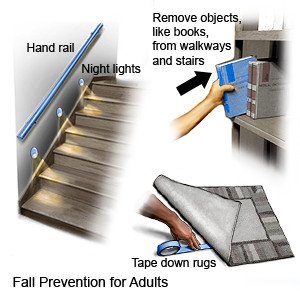Polymyalgia Rheumatica
Medically reviewed by Drugs.com. Last updated on Apr 2, 2024.
What is polymyalgia rheumatica?
Polymyalgia rheumatica is a condition that causes muscle pain and stiffness from inflammation. The symptoms are worst after you have not used the muscles for a period of time. For example, it may be difficult to get out of bed when you wake up in the morning. Polymyalgia rheumatica usually affects people older than 50 years, often after age 70. Polymyalgia rheumatica can occur with a serious condition called giant cell arteritis, or temporal arteritis. This condition causes the walls of arteries to swell.
What are the signs and symptoms of polymyalgia rheumatica?
Any of the following may develop suddenly or within a few days or weeks:
- Pain, aching, or stiffness in both shoulders, or your neck, upper arms, or hips
- Pain and stiffness that gets better with movement
- Trouble raising your arms higher than your shoulders
- Trouble getting dressed or rising out of a chair
- Less ability to move joints fully
- Fatigue, loss of appetite, or weight loss without trying
How is polymyalgia rheumatica diagnosed and treated?
- Tell your healthcare provider about your symptoms and when they began. Tell him or her if the pain and stiffness are worse in the morning or after a period of inactivity. He or she may take a blood sample to measure the amount of inflammation. Your provider may give you a small dose of steroid medicine by mouth or into a muscle. If you have polymyalgia rheumatica, the steroid will help relieve inflammation that is causing the pain.
- You may feel relief right away, or it may take several doses of steroid medicine before you feel better. Your provider will increase the dose until your symptoms are controlled. He or she will then lower the dose over a few days or weeks to find the lowest dose that is effective. You will then continue to take the medicine at that dose, usually for about 6 months. You may need to continue for up to 3 years to control the pain. NSAID medicines may help relieve mild pain and stiffness.
What can I do to manage polymyalgia rheumatica?
- Exercise as directed. Exercise can help prevent or reduce pain. Exercise can also help you keep muscle mass and prevent falls.

- Go to physical therapy as directed. A physical therapist can teach you exercises to help keep muscle mass. He or she can also teach you exercises to improve range of motion in joints that are difficult to move.
- Use assistive devices as needed. A raised toilet seat or chair can help you stand more easily. Devices are available to help you reach items on high shelves if you have trouble reaching up. Your healthcare provider may recommend a cane or walker to help you keep your balance.

- Eat a variety of healthy foods. Healthy foods include fruits, vegetables, whole-grain breads, low-fat dairy products, beans, lean meats, and fish. Healthy foods can help you have more energy. Ask if you need to be on a special diet.

Treatment options
The following list of medications are related to or used in the treatment of this condition.
When should I seek immediate care?
- You have signs or symptoms of giant cell arteritis, such as a headache, jaw pain, vision changes, or a fever.
When should I call my doctor?
- You have new or returning signs or symptoms of polymyalgia rheumatica while the steroid medicine is being lowered.
- You have questions or concerns about your condition or care.
Care Agreement
You have the right to help plan your care. Learn about your health condition and how it may be treated. Discuss treatment options with your healthcare providers to decide what care you want to receive. You always have the right to refuse treatment. The above information is an educational aid only. It is not intended as medical advice for individual conditions or treatments. Talk to your doctor, nurse or pharmacist before following any medical regimen to see if it is safe and effective for you.© Copyright Merative 2024 Information is for End User's use only and may not be sold, redistributed or otherwise used for commercial purposes.
Learn more about Polymyalgia Rheumatica
Treatment options
Symptoms and treatments
Further information
Always consult your healthcare provider to ensure the information displayed on this page applies to your personal circumstances.
